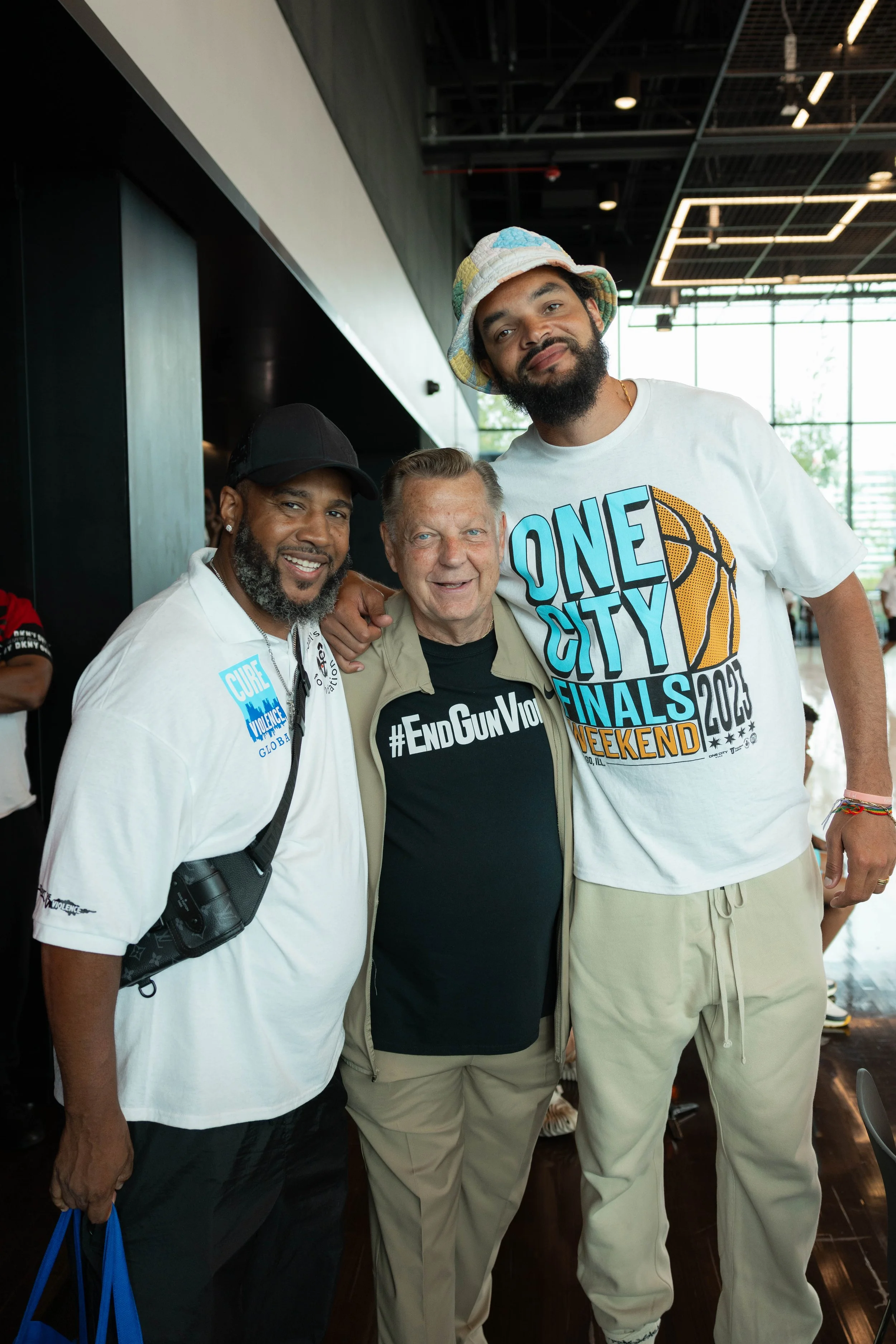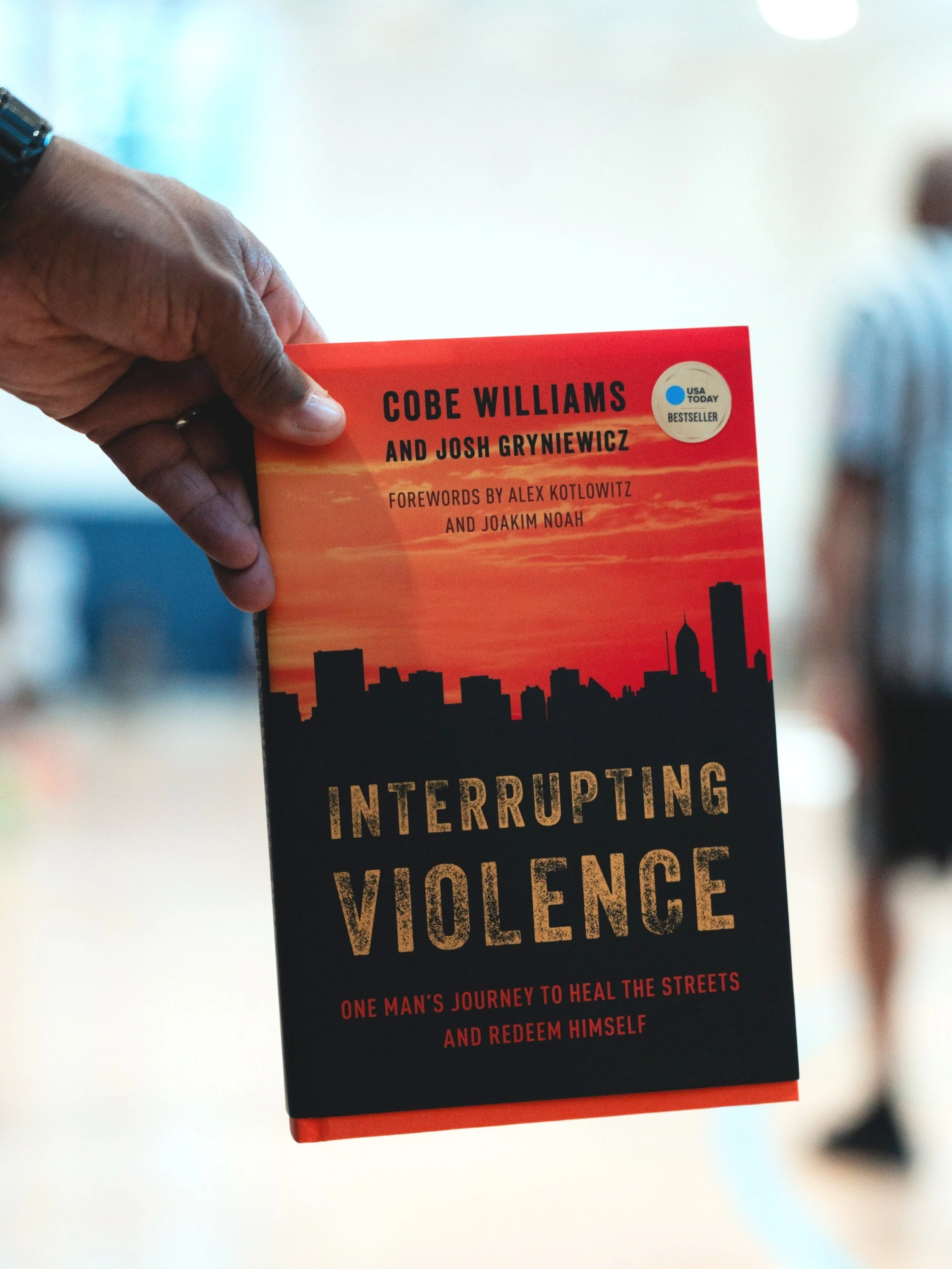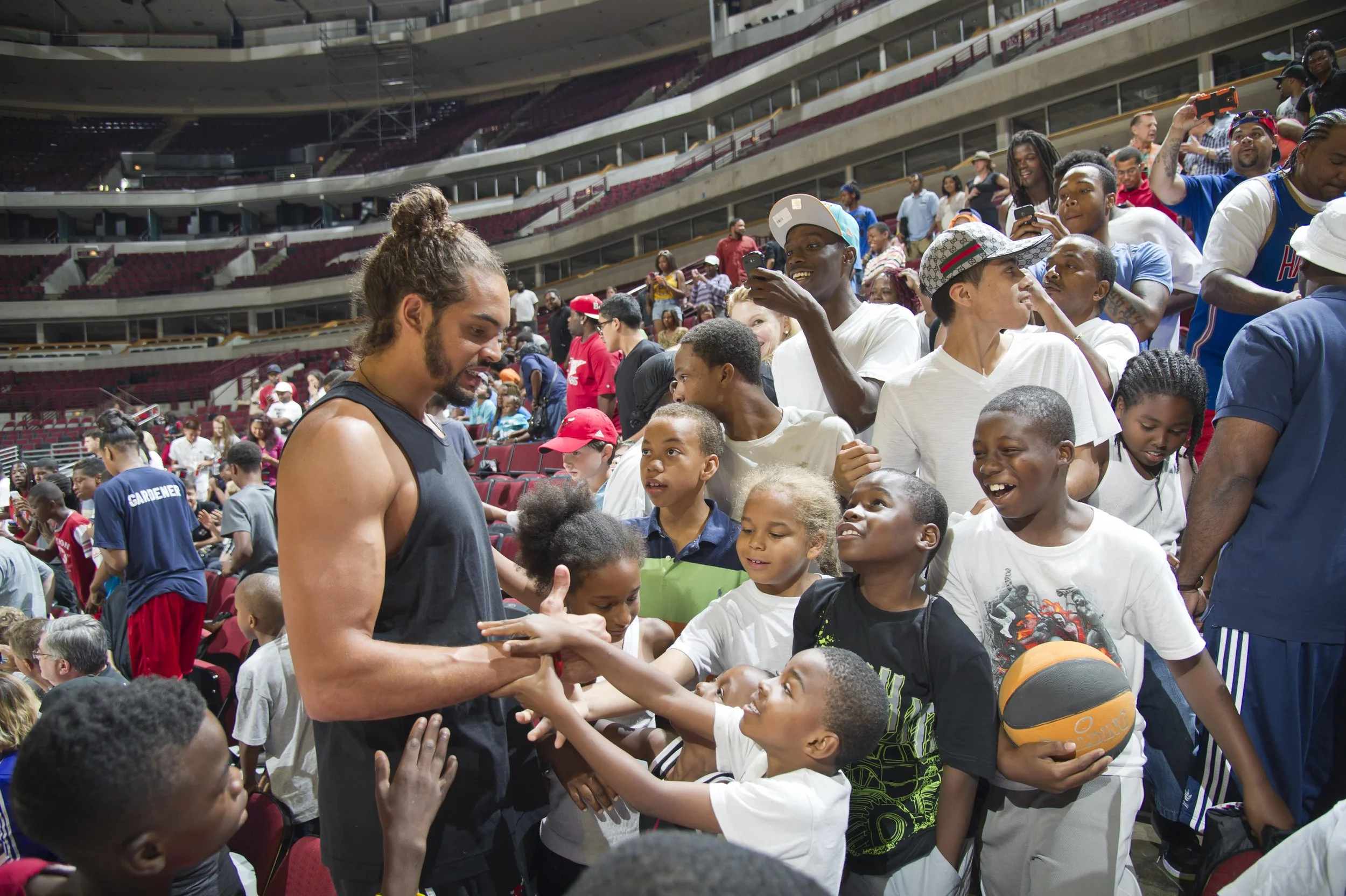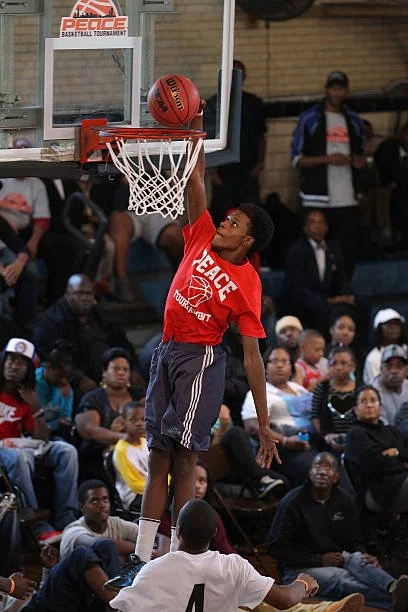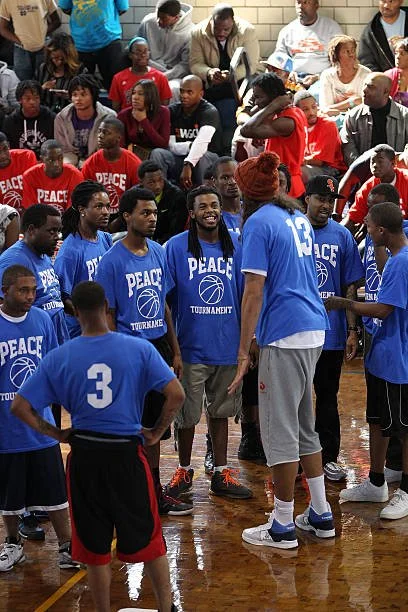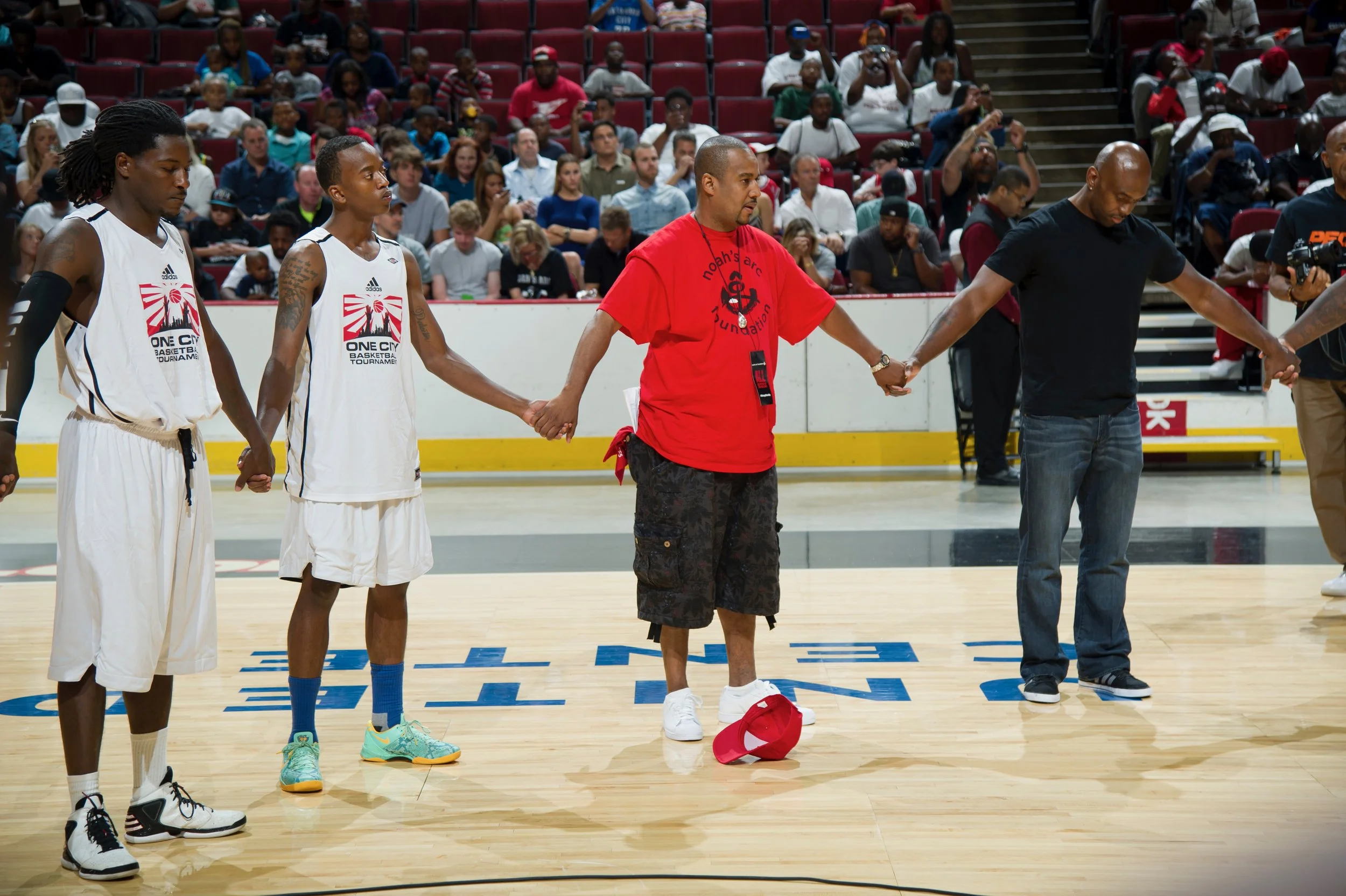
How a Basketball Tournament Became a Movement
On September 22, 2012, Chicago’s Auburn Gresham neighborhood witnessed something remarkable. Amid a violent four-way gang war that made everyday life unsafe, an extraordinary event took place at Saint Sabina Church—a Peace Basketball Tournament that brought together young men from rival factions—different groups and cliques—on the same court.
“This was one of the most powerful experiences of my life,” Noah said. “To see young men who are supposed to be enemies competing together, playing the game we love, dapping each other up—that’s real change. That’s what this city needs.”
The basketball tournament was sparked by a call for peace during this particularly violent period in Chicago. It would be the first tournament that One City co-founders Joakim Noah and Cobe Williams participated in together, planting the seeds for over a decade of community-based violence prevention work.
Father Michael Pfleger, a prominent voice for peace in the city and longtime pastor of Saint Sabina, reached out to Asa “Duce” Powell, a businessman and local community organizer, suggesting a Peace Tournament that could bring together warring neighborhoods.
Duce, in turn, brought Cobe into the planning. He was already doing his part to quell the war through Cure Violence (then CeaseFire), using a violence interruption public health model out of a community office based in the center of the warzone.
The two had grown up in the same neighborhood and had known each other for years. Duce was familiar with Cobe’s work and interested in partnering with the local Cure Violence office to help organize the event, ensure participants' safety, and provide a violence prevention strategy that would give the tournament an impact beyond the single event.
At the same time, Cobe was building a new relationship with Joakim, who initially worried the event would be seen as a publicity stunt. He didn’t want it to be a photo op that didn’t accomplish anything meaningful. Cobe and Duce emphasized its community-driven purpose.
Behind the scenes, the Cure Violence team was working on establishing peace treaties between the four warring groups. The tournament was just one part of a deeper, broader-reaching strategy. He ultimately got behind the effort when he saw the bigger picture.
The Nation of Islam provided security, ensuring young men could come together safely inside the Catholic church. This was a rare and powerful demonstration of unity across the board, proving that peace was possible at every level when people worked together for a common cause.
For Joakim, the experience was life-changing. It planted the seed for a model that would later become a powerful violence prevention strategy rooted in unity, trust, and community collaboration.
To have long term success, Joakim and Cobe knew this couldn't be a one-time, one-off event. They saw the potential for something bigger—a structured program that could use basketball as a bridge to bring people together and create real opportunities beyond the game.
They began strategizing how to scale up the work. Cobe spent years working on the front lines, mediating conflicts and helping young men find ways to escape cycles of violence. Together, they laid the foundation for what would become One City—an initiative built on the belief that basketball could be a tool for healing, mentorship, and personal growth.
READ MORE ON THE STORY BEHIND ONE CITY
Want the full story of how One City began? Check out Interrupting Violence: One Man's Journey to Heal the Streets and Redeem Himself, the USA Today National Bestseller by co-founder Cobe Williams—a firsthand look at how he turned street credibility into life-saving work—co-written with Josh Gryniewicz.
Interrupting Violence—part memoir, part call to action—offers a blueprint for cities across America looking for a new way to address community violence. Cobe shares his powerful journey from the front lines—stopping shootings, building trust, and proving that change is possible. In it, he shares the story of how a simple basketball game sparked a movement that is now transforming lives nationwide.
📖 Available wherever books are sold!
🔗 Get your copy: www.interruptingviolence.com
The program established structured leagues where young men from different neighborhoods play on the same teams, breaking down barriers one game at a time. Basketball is just the hook. The One City games also incorporate mentorship, conflict resolution, and economic opportunities, ensuring participants have a path forward off the court.
The impact was immediate. Neighborhood tensions started to shift. Players who once saw each other as enemies now saw each other as teammates.
Joakim and Cobe continued supporting Father Mike's annual peace league but started holding separate basketball tournaments.
In 2014, they hosted a championship game at the United Center, a massive event that even supporters around them worried might be an overreach. Given the high risk of the youth involved and the nature of the project, well-meaning detractors told Cobe and Joakim to lower expectations. It didn’t seem possible to bring a bunch of youth from the South and Westside to play on the same court as the Bulls; they were warned.
One City became more than just a tournament;
it became a movement.
The duo was uncompromising in their vision. Being able to host something at that scale with historically marginalized young men was symbolic. It represented that the city was for every one of its residents. Cobe and Joakim pulled it off. The Southside played the Westside on a court built for legends.
While Joakim rocked the mic, Derrick Rose coached the Southside team, and Nazr Mohammed assisted. Patrick Beverley—Houston Rockets guard, Marshall High School alum, and pride of K-Town coached the West.
That event was called One City, which brought the whole city together for that one special day, but the name would stick.
Over a decade later, One City has grown beyond one-off, one-day events and beyond Chicago, expanding into cities like Memphis, proving that the model of basketball as a unifier can work anywhere.

